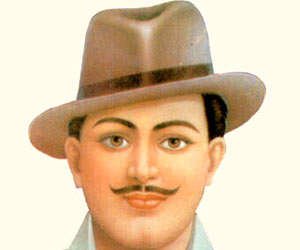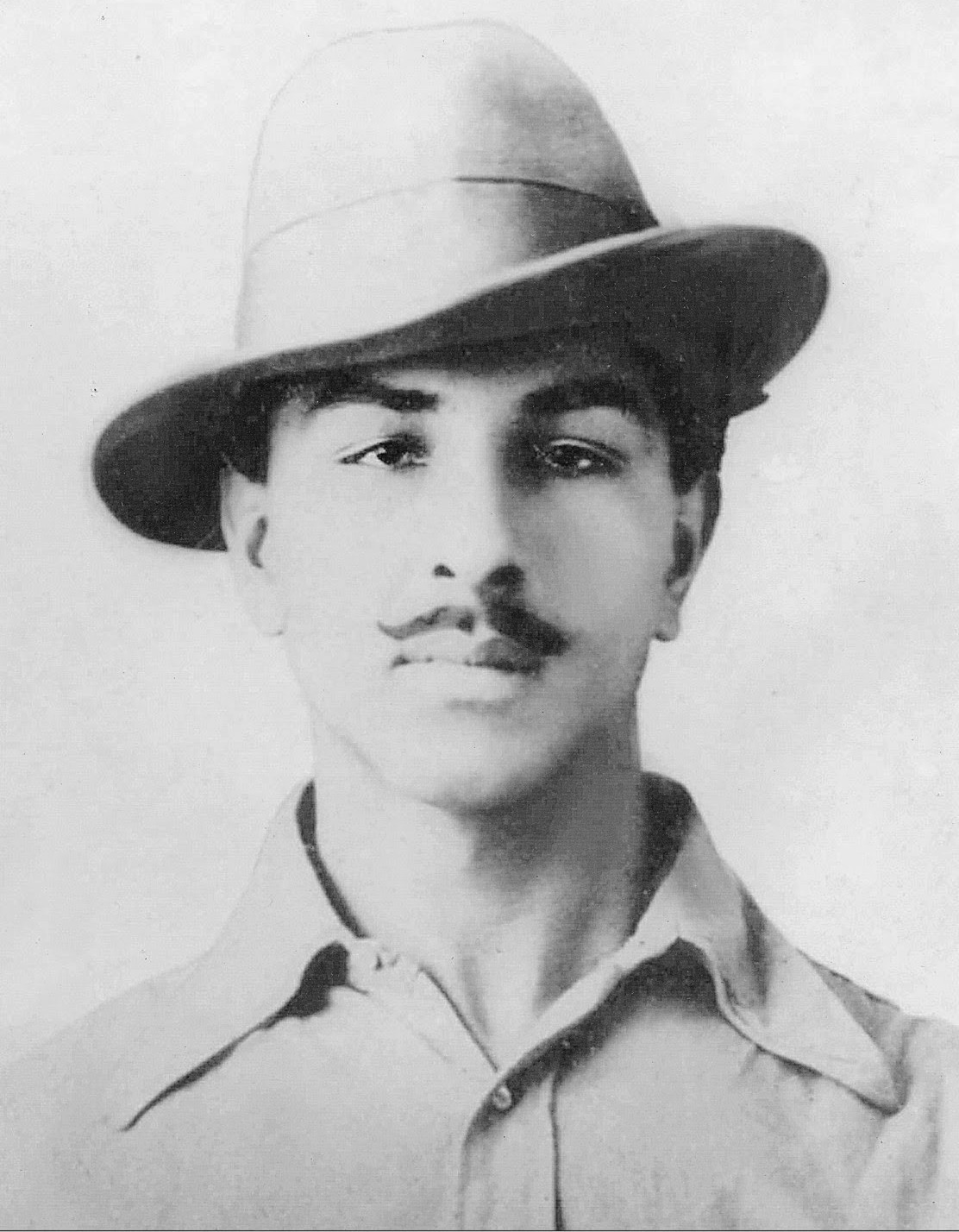Biography of Shaheed Bhagat Singh
>> Sunday, March 7, 2010

Though portrayed as a terrorist by the British, Sardar Bhagat Singh was critical of the individual terrorism which was prevalent among the revolutionary youth of his time and called for mass mobilization. Bhagat Singh gave a new direction to the revolutionary movement in India. He differed from his predecessors on two counts. Firstly, he accepted the logic of atheism and publicly proclaimed it. Secondly, until then revolutionaries had no conception of post-independence society. Their immediate goal was destruction of the British Empire and they had no inclination to work out a political alternative. Bhagat Singh, because of his interest in studying and his keen sense of history gave revolutionary movement a goal beyond the elimination of the British. A clarity of vision and determination of purpose distinguished Bhagat Singh from other leaders of the National Movement. He emerged as the only alternative to Gandhi and the Indian National Congress, especially for the youth.
Bhagat Singh was born in a Sikh family in village Banga in Layalpur district of Punjab (now in Pakistan). He was the third son of Sardar Kishan Singh and Vidyavati. Bhagat Singh's family was actively involved in freedom struggle. His father Kishan Singh and uncle Ajit Singh were members of Ghadr Party founded in the U.S to oust British rule from India. Family atmosphere had a great effect on the mind of young Bhagat Singh and patriotism flowed in his veins from childhood.While studying at the local D.A.V. School in Lahore, in 1916, young Bhagat Singh came into contact with some well-known political leaders like Lala Lajpat Rai and Ras Bihari Bose. Punjab was politically very charged in those days. In 1919, when Jalianwala Bagh massacre took place, Bhagat Singh was only 12 years old. The massacre deeply disturbed him. On the next day of massacre Bhagat Singh went to Jalianwala Bagh and collected soil from the spot and kept it as a memento for the rest of his life. The massacre strengthened his resolve to drive British out from India.
In the face of actions by the revolutionaries, the British government enacted the Defence of India Act to give more power to the police.[citation needed] The purpose of the Act was to combat revolutionaries like Bhagat Singh. The Act was defeated in the council by one vote.[citation needed] However, the Act was then passed under the ordinance that claimed that it was in the best interest of the public. In response to this act, the Hindustan Socialist Republican Association planned to explode a bomb in the Central Legislative Assembly where the ordinance was going to be passed. Originally, Chandrashekhar Azad, another prominent leader of the revolutionary movement attempted to stop Bhagat Singh from carrying out the bombing. However, the remainder of the party forced him to succumb to Singh's wishes. It was decided that Shahid Bhagat Singh and Batukeshwar Dutt, another revolutionary, would throw the bomb in the assembly.
On April 8, 1929, Singh and Dutt threw a bomb onto the corridors of the assembly and shouted "Inquilab Zindabad!" ("Long Live the Revolution!"). This was followed by a shower of leaflets stating that it takes a loud voice to make the deaf hear.
Bhagat Singh was known for his appreciation of martyrdom. His mentor as a young boy was Kartar Singh Sarabha. Singh is himself considered a martyr for acting to avenge the death of Lala Lajpat Rai, also considered a martyr. In the leaflet he threw in the Central Assembly on 9 April 1929, he stated that It is easy to kill individuals but you cannot kill the ideas. Great empires crumbled while the ideas survived. After engaging in studies on the Russian Revolution, he wanted to die so that his death would inspire the youth of India which in turn will unite them to fight the British Empire.
While in prison, Bhagat Singh and two others had written a letter to the Viceroy asking him to treat them as prisoners of war and hence to execute them by firing squad and not by hanging. Prannath Mehta, Bhagat Singh's friend, visited him in the jail on March 20, four days before his execution, with a draft letter for clemency, but he declined to sign it.


4 comments:
Saheed Bhagat Singh will remain the torch bearer for all the time to come of all BHARATIYAS who fill proud to be BHARATIYA
Saheed Bhagat Singh AMAR HAIN
He is a great legend.One should take inspiration from him
he is great y because he has scarficise his life for sake of nation. And i salute all the freedom fighters who have been scarficise their life for the sake of INDIA THANK U FREEDOM FIGHTERS AND A BIG SALUTE FROM MY NATION TO U ALL........
Post a Comment